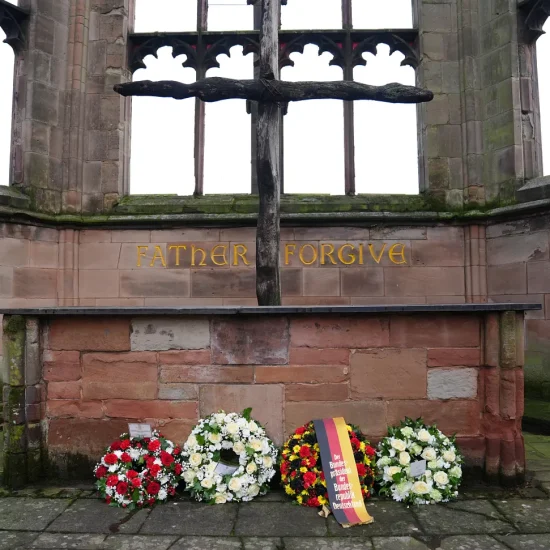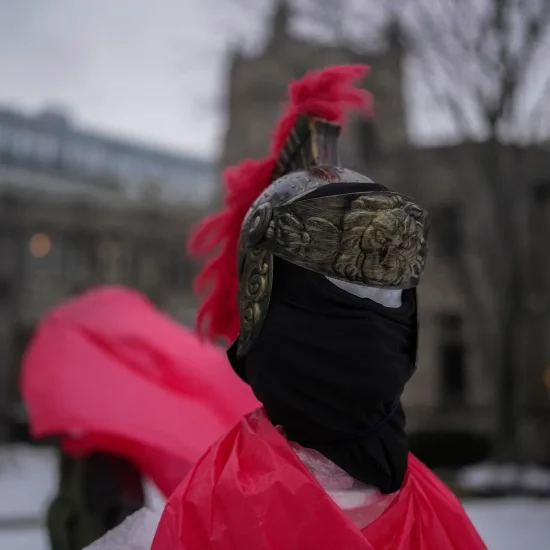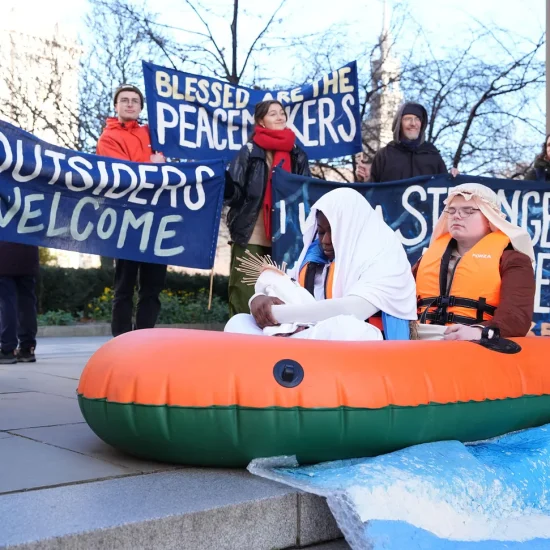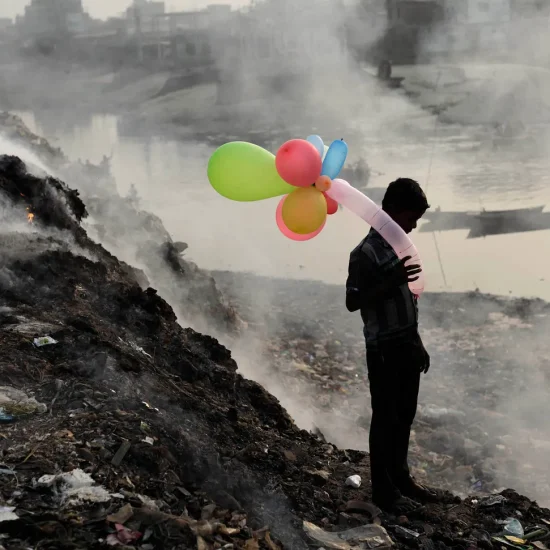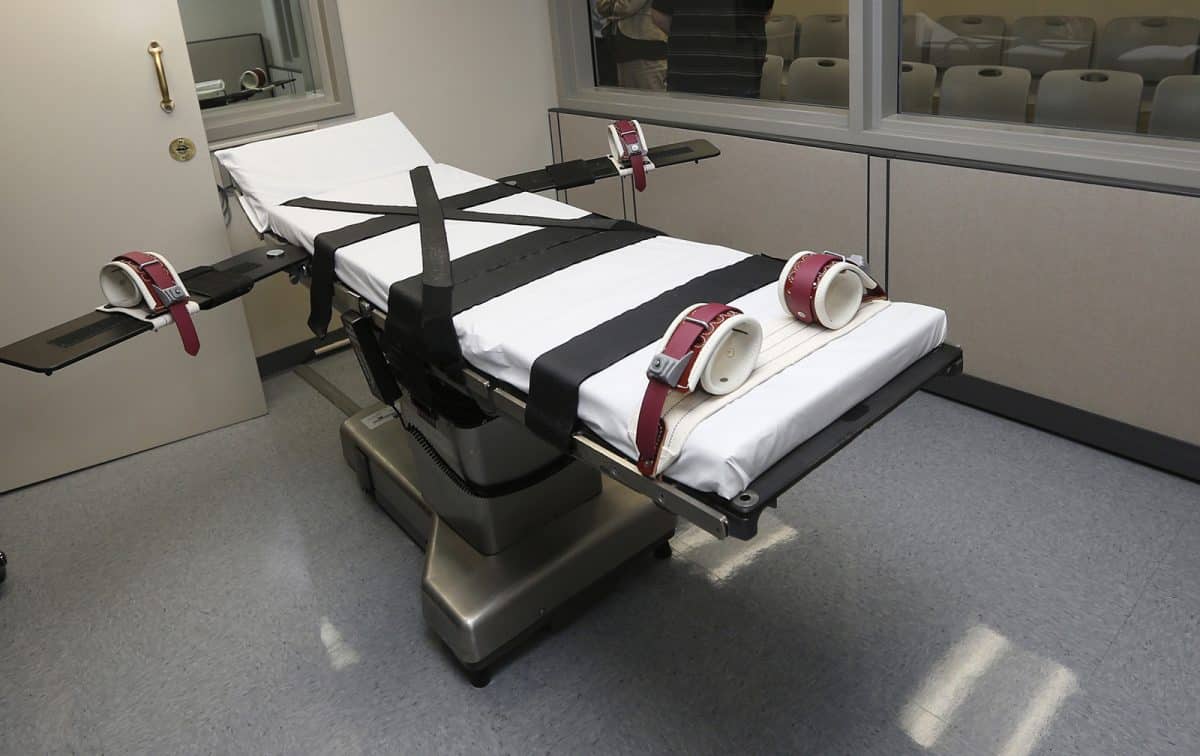
“And the king will answer them, ‘Truly I tell you, just as you did it to one of the least of these who are members of my family, you did it to me.’ Then he will say to those at his left hand, ‘You that are accursed, depart from me into the eternal fire prepared for the devil and his angels; for I was hungry and you gave me no food, I was thirsty and you gave me nothing to drink, I was a stranger and you did not welcome me, naked and you did not give me clothing, sick and in prison and you did not visit me.’ Then they also will answer, ‘Lord, when was it that we saw you hungry or thirsty or a stranger or naked or sick or in prison, and did not take care of you?’ Then he will answer them, ‘Truly I tell you, just as you did not do it to one of the least of these, you did not do it to me.’” (Matthew 25:40-45)
When people hear about my job, their first response is often to pepper me with questions. As a Capital Mitigation Specialist, I assist attorneys who are representing individuals sentenced to death who are in their last stages of appeals. With a background in social work, it is my job to learn and to tell my clients’ stories.
In a criminal legal system that strips those who we label as “defendants” and “inmates” of their humanity, it is my job to present the men and women I represent as whole people, deserving of empathy, understanding, and dignity. To do this, I spend a great deal of time with my clients, speaking about their life. I meet their employers, friends, and teachers. I build and foster relationships with their family.
I often joke with my friends and family that “I’m really fun at dinner parties,” because while people are often curious to hear about the general mechanics of my job, the conversation inevitably leaves people feeling unsettled. You might think that I would shy away from these conversations, but on the contrary, I find them to be one of the most important parts of my vocation.
To speak to people about the trauma and neglect experienced by so many of my clients in childhood, to explain the procedural hurdles that my clients face when seeking justice, to illustrate the cruel indifference of a system that cares more about precedent and efficiency than mercy and humanity, is to shake the foundation of that very system.
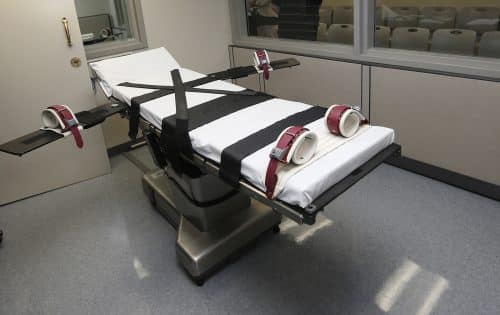
This Oct. 9, 2014, photo shows the gurney in the the execution chamber at the Oklahoma State Penitentiary in McAlester, Oklahoma. (Sue Ogrocki/Associated Press)
I believe with my whole heart that capital punishment persists in this country exactly because of how little it is understood by the majority of Americans.
In the last few years, a few high-profile cases, along with Donald Trump’s spree of federal executions, raised the public profile of this issue. As someone who lives within this world, I was heartened to see widespread outrage and horror as our country executed thirteen people, despite concerns over their innocence, their culpability, their mental competency, and the wishes of some victims’ families.
There is pain in being aware of these truths, but it is necessary. My office recently lost a client to execution, and the night before he was killed, my colleagues and I had the privilege of being joined on a Zoom call by Sister Helen Prejean. She spoke to us about the hurt of being so acutely aware of injustice and feeling powerless against it, but she reminded us that this is part of the blessedness of being awake.
In this season, as we await the arrival of Jesus, let us remember his call to us to care for the least of these. Let us keep our eyes and hearts open. Let us be blessedly awake.
Sophie Day, MSW is a Capital Mitigation Specialist at the Federal Public Defender for the Western District of Missouri.
NOTE: This is part of our Unsettling Advent devotionals running Nov. 28-Dec. 24. You can subscribe for free to receive them each morning in your inbox.


